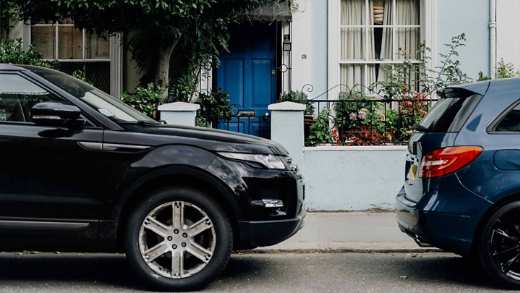Installing a car immobiliser
This article covers what a car immobiliser is and how they work.

What is a car immobiliser?
There are two main types of immobilisers:
- Built-in electronic: If a thief uses a fake key in the ignition or hot wires the car (using a piece of wire rather than the key), your immobiliser stops the car from starting.
- Mechanical: These include locks for the steering wheel or gearstick.
How do electronic immobilisers work?
When it’s activated, the key or fob in your car sends a code to your car's internal computer (known as the engine control unit, or ECU) to power up the engine. But if an unrecognised key is used, the immobiliser stops the ECU from getting the code and prevents the engine from starting.
How do I know if my car has an immobiliser?
Cars built after October 1998 will have one fitted, while older cars probably won’t. The best way to check is in your vehicle's handbook.
If you've got a second-hand imported car, it may not have an immobiliser installed, as the laws aren't the same outside the UK. If you find out your car doesn't have an immobiliser, having one fitted will help keep you car safe and might bring your insurance price down.
Insurers generally see a factory-fitted car immobiliser as the most effective as it will be specifically designed for your car. And many modern immobilisers can be used with a smartphone app.
Thatcham devices and alarms
Thatcham Research is a pioneer in the field of vehicle safety, security, and repair standards.
Since the 1990s, consumers have been able to compare the features of different alarms, immobilisers and tracking systems thanks to the Thatcham Categories, which assess they’re functional, and designed to perform as expected.
After assessing the devices' features and functions, if they’re approved, they’ll fall into one of seven Thatcham Security Certifications.
Types of Thatcham approved product
Category 1 devices combine an alarm with an immobiliser. They might also offer advanced features like glass break sensors, and the alarm must also have its own battery power.
Category 2 products only feature an immobiliser, but it's got to meet the same technical specs as Category 1 and must be resistant to attack for at least five minutes.
- If you want to upgrade your immobiliser and potentially lower your insurance cost, you can retrofit an alarm that meets the requirements of Category 1. This is known as Thatcham Category 2/1.
Category 3 are mechanical immobilisers which act as both a visual deterrent and a physical obstacle. Aside from a steering wheel or gearstick lock, a wheel clamp will also fall into this category.
Category 4 products are wheel nuts, which help to keep alloy wheels safe. As well as needing a secure key replacement procedure, traceable products, and resistance to attack, these must be secured with a special key.
Category S5 devices can track where a stolen vehicle is and remotely shut down the car by blocking some engine functions.
Category S7 is like S5 except it can’t shut down the car, it only tracks its location.
When you’re shopping for these types of products, ensure they’re Sold Secure tested or Secured by Design (SBD) approved. Footnote [1]
Are there any potential problems with immobilisers?
There are some risks involving faulty immobilisers. Although rare, these typically involve
- problems with locking and unlocking your car – usually due to a dead battery or an issue with how the fob is interacting with the immobiliser
- keys that don't start the car – caused by an issue with a chip inside the key fob that may stop it from sending the security code to the immobiliser
- malfunctioning alarms – either the alarm stops working or it keeps going continuously!
The risk of someone cloning your key fob
To help prevent this, you can put your key or fob in an aluminium tin or a special signal blocker bag such as a Faraday pouch. If you do this, thieves won't be able to intercept your signal and clone your key, making it much harder for them.



